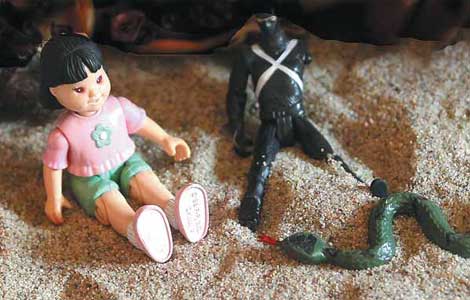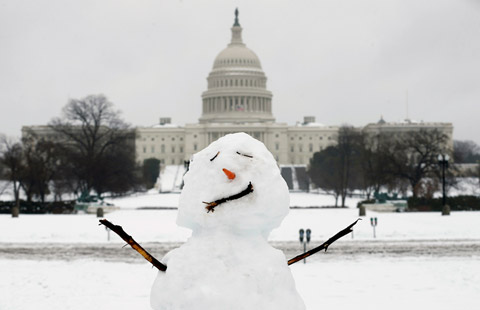Lamb imports soar as former favorite cuts get the chop from shoppers
Updated: 2014-02-14 07:18
By Zhong Nan (China Daily)
|
||||||||
Yu Bin, director of the department of macroeconomic research at the State Council Development Research Center, said the changes in food consumption reflect greater economic success. One obvious sign is rising international trade in food products.
Chinese citizens consumed an average of 16.5 kg of mutton per capita in 2013, compared with only 12 kilograms in 2008. The Beijing-based China Meat Association predicts that this figure will reach 28 kg between 2017 and 2022.
"The demand for mutton certainly will provide many opportunities for major mutton-exporting markets such as Australia, New Zealand and Canada," Yu said.
Yu said demand for the meat in China's western region, particularly in Ningxia Hui autonomous region, Xinjiang Uygur autonomous region, Qinghai and Gansu provinces, has quickly grown over the past three years, mainly because it is getting more expansive to raise sheep in western China, where the economy and livestock industry are less developed than in the eastern provinces.
Due to rising feed prices, limited grazing land and the breeding cycle, China's sheep breeding sector lags behind consumer demand and has resulted in higher lamb prices over the past five years, according to a report released in December by the Institute of Environment and Sustainable Development in Agriculture of the Chinese Academy of Agricultural Sciences.
Wang Kai, a professor at Nanjing Agricultural University in Jiangsu province, said the soaring cost of raising sheep has squeezed sheep ranchers' profit margins since 2007. In response, they started seeking alternatives, raising pigs, chicken and even donkeys.
To ensure that provinces and autonomous regions in western China get sufficient supplies, at major festival times, the central government has been providing mutton and beef to such regions as Xinjiang and Ningxia, where people have eating habits and religions similar to those of Muslim countries.
The central government supplied 7,200 metric tons of State-reserved mutton and beef with set prices to Xinjiang in January and continued to offer financial and technical assistance to encourage locals to raise their own sheep to keep up with mutton demand in the region.
Most Viewed
Editor's Picks

|

|

|

|

|

|
Today's Top News
Kerry's visit bodes well for China-US ties
China underscores Maritime Silk Road co-op
A holiday that’s red-hot for lovers and retailers
Plan drafted for $36b undersea tunnel
Rural reform needs science input
Service gives hope to bereaved parents
China's IPOs raise nearly $5 billion
Hungary unlikely to join the eurozone soon
US Weekly

|

|













